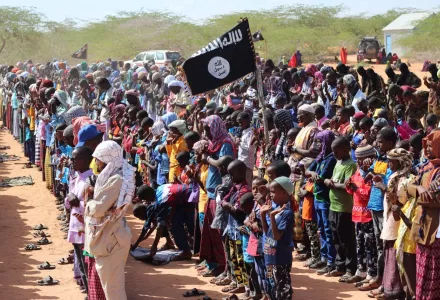Speaker: Christopher Anzalone, Postdoctoral Research Fellow, International Security Program
The advent of Islamist rebel governing projects in different regions of the world from Africa to the Middle East and West and South Asia provides an opportunity to link the empirical study of these groups with the broader academic literature on rebel governance, political Islam, and religion and violence. Despite in recent years making up a larger number of empirical cases of insurgent organizations seeking to implement governance projects, Islamist organizations have to date received limited focus in studies on the structures, ideologies, and dynamics of rebel governance. This interdisciplinary project examines the strategies and experiences of Islamist insurgent organizations that have actively attempted to set up civil governing systems through which to interact with local civilian populations. It situates the study of Islamist insurgent groups with governance ambitions within the growing literature on rebel governance.
The territorial governance projects of Islamist rebel groups, like those of non-Muslim rebels, include a wide range of activities including the distribution of food and material aid, implementation of a system of law and order, mediation of civil disputes, and construction and agricultural projects. As part of their proto-state governance projects, Islamist rebels construct and deploy symbols and symbolic repertoires that advance the group’s claim to symbolic sovereignty and legitimate sociopolitical authority in a systematized language that is meant to resonate more deeply with local audiences than a naked display of insurgent power or a system of exchange based on material incentives alone. Symbolic repertoires and the use of symbolic power allow Islamist rebel rulers to advance their governance ambitions and claims of legitimacy within a defined narrative frame, imbuing them with added historical and religious legitimacy through the inclusion of specific symbols and performance of specific rituals such as congregational prayers, communal religious festivals, reconstructing local education systems, and couching insurgent shari’a-based "justice" within a theological as well as legal framework. This presentation will examine how Islamist insurgent rulers use symbolic repertoires and symbolic power as a form of soft power to complement their military forces and implementation of law and order as part of their territorial governing projects, focusing in particular on Somalia's Al-Shabab and Islamic State.
Please join us! Coffee and tea provided. Everyone is welcome, but admittance will be on a first come–first served basis.


